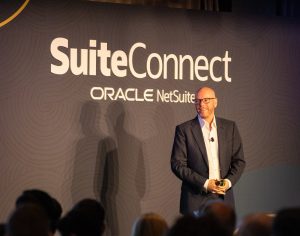For a fledgling start-up, a new customer is like gold dust, and every effort must be made to cater for their needs from the outset. Of course, a business of any size would be nothing without its customers, so it pays to look after them at all times. In that respect, a basic starting point would seem to be collating as much information on every new client, and potential client, before storing it in a safe, secure and accessible location. And in this day and age, such a location will be one’s PC, laptop, tablet or smartphone. A leather-bound address book can ultimately only get you so far in the 21st century.
Suffice to say, there is a plethora of technology options available to the entrepreneur in this regard, with the most popular proving to be some of the dedicated customer relationship management (CRM) solutions offered by third-party suppliers. “CRM means lots of different things to lots of different people but I think the simplest way to look at it is you need to be able to track your customers, and you need to understand your customers,” says Mark Panay, CEO of cloud-based CRM platform Contactzilla. “The biggest real benefit of any CRM system is to help you isolate your prospects and then follow them up.”
Nevertheless, depending on the nature of an enterprise, holding key information may only be a tiny piece of the jigsaw when it comes to managing ongoing customer relationships. As a business grows its client base, and takes on new staff, it could become useful to keep tabs on who is managing which customers, what stage in the sales process they are at, and how a certain product or service has worked for one client compared to another. He or she may also require a streamlined communications channel, and some sort of social-media integration to stay in sync with customers on all levels. All said and done, they want an overview of their enterprise at the touch of a button.
Still, for a self-starter with no employees, a dedicated CRM system may not be necessary straightaway and much can be achieved with the technology already at one’s fingertips. “I often deal with very small, one-person businesses, a lot of whom seem to think that from day one, they need a dedicated CRM, and a lot of them don’t,” says Francesca Geens, founder of IT consultancy Digital Dragonfly. “I am a big fan of using software such as Outlook, which may sound really basic, but there are plenty of people out there who I think can get away with using it.” She also suggests this can make an eventual move to CRM less painful. “Once you have Outlook organised in a good way, it will then be a lot easier when you do need to graduate to CRM because you will have a better understanding of what data is important to you.”
Naturally, though, Geens admits that such software can only get a business so far, and that even at the start-up stage a more bespoke CRM system offers myriad features to make life easier for an SME. She says: “If you are a high-transaction, high-volume, high-repeat business – or especially if you sell online – you do need to build up that data to understand who is buying, how they are buying, and how often they are buying.”
The difficulty, therefore, lies in selecting the system that suits the needs of your enterprise. Part of this is whether one opts for a cloud-based or software-as-a-service (SaaS) solution over an offline ‘on premise’ programme. While Geens believes the former option probably makes more sense for a start-up, she can still see the appeal of a more local CRM service, as provided by an offline solution. “Where cloud and SaaS stand out is that you are always on the latest version – they are rolling out upgrades and changes all the time and it is just seamless,” she explains. “I haven’t dealt with any clients who are using an offline CRM, but there are still advantages of using those, the main one being that it is much easier to customise them to your own needs.”
And although online options may appear to hold more attraction to a start-up from a cost perspective – free trials are a particular selling-point – the enhanced security and sense of ownership offered by an ‘on premise’ solution continues to hold some weight. “I really believe the most important business asset for a company is its client bank,” says Mark Baker, managing director of CRM software provider matrixCRM. “So, to know that you fully own that client bank, and only you and your staff have access to that, I think is really important.”
Regardless, whatever path a small business owner decides to tread, there are a multitude of reasons to broaden one’s CRM horizons beyond the bare bones. “The obvious benefit is that it means the business can have all of its information in one place, and that information is easily accessible and presented in a logical and useful way to that business,” says Baker. “By having that information organised in a useful way, it means that the business can be more efficient and also present a much more professional image when they are speaking to their customers.”
Certainly, there is at least one SME out there that couldn’t live without the technology. “It will give you a much better oversight of where you are going as a business, and give you much greater control from day one,” says Marc Crouch, chief technology officer for umi Digital. “As a web design agency, where there is a huge emphasis on upsell particularly, it has transformed our business.” Essentially then, it all comes down to having a good old shop around for the best solution, of which there is a rich abundance.
Share via:


















































